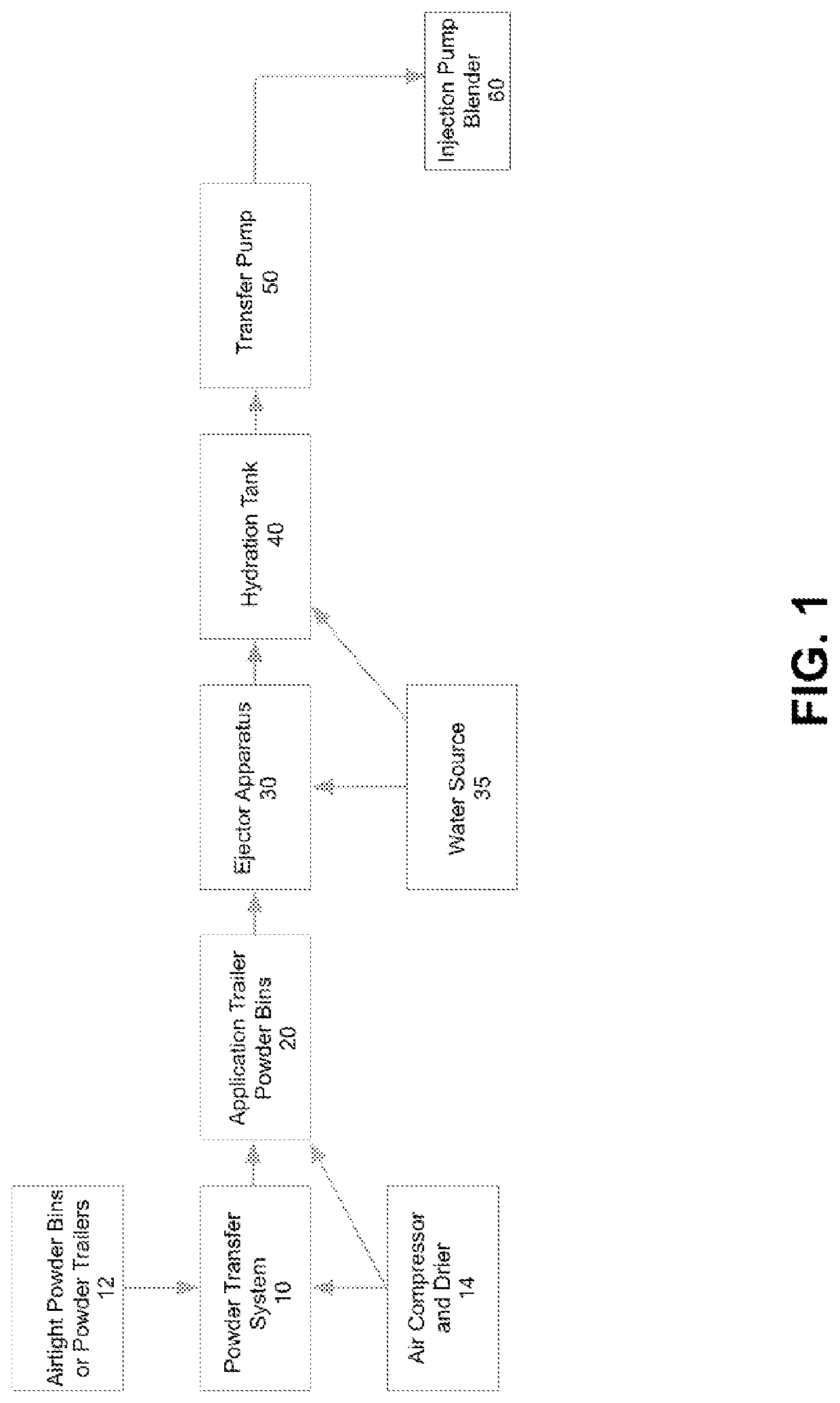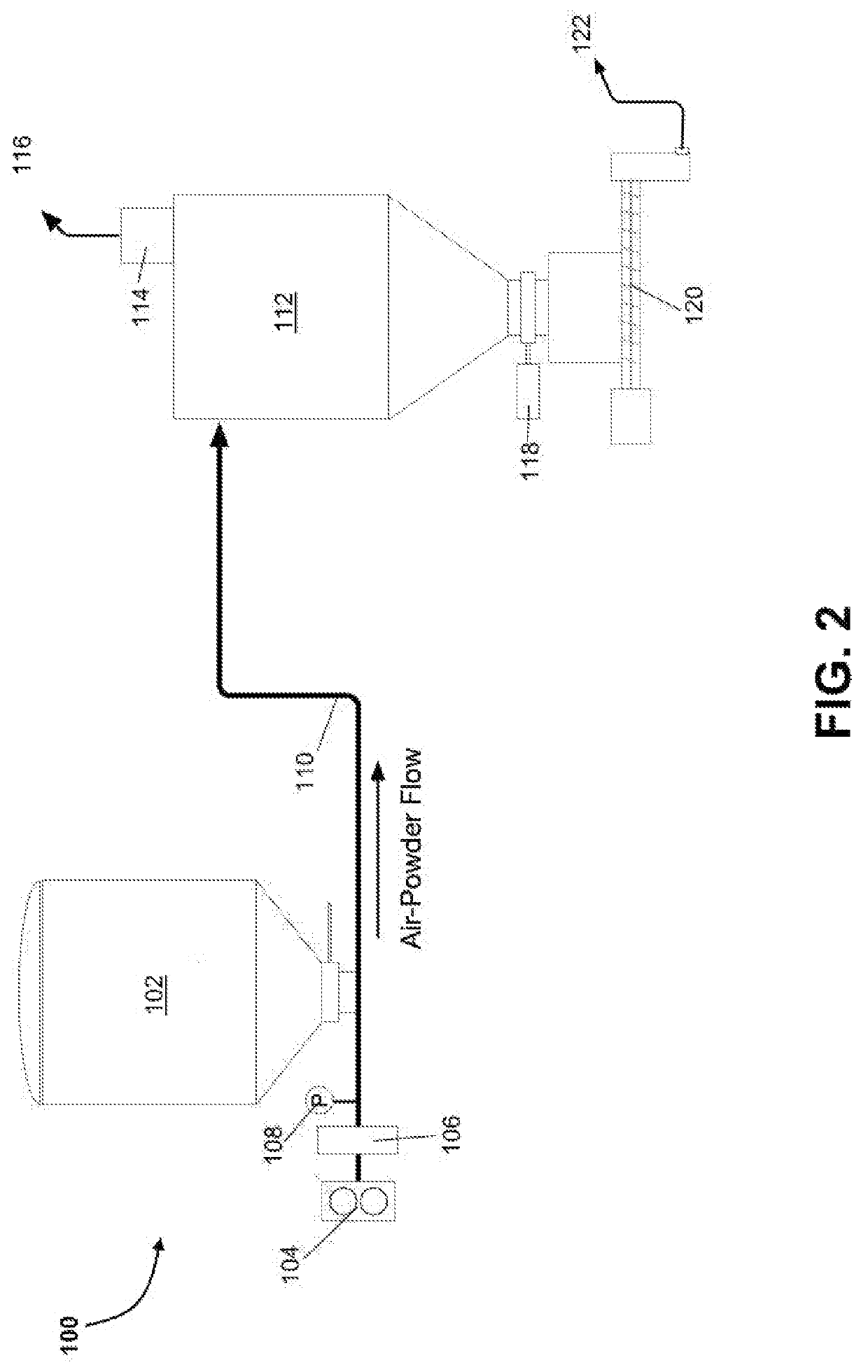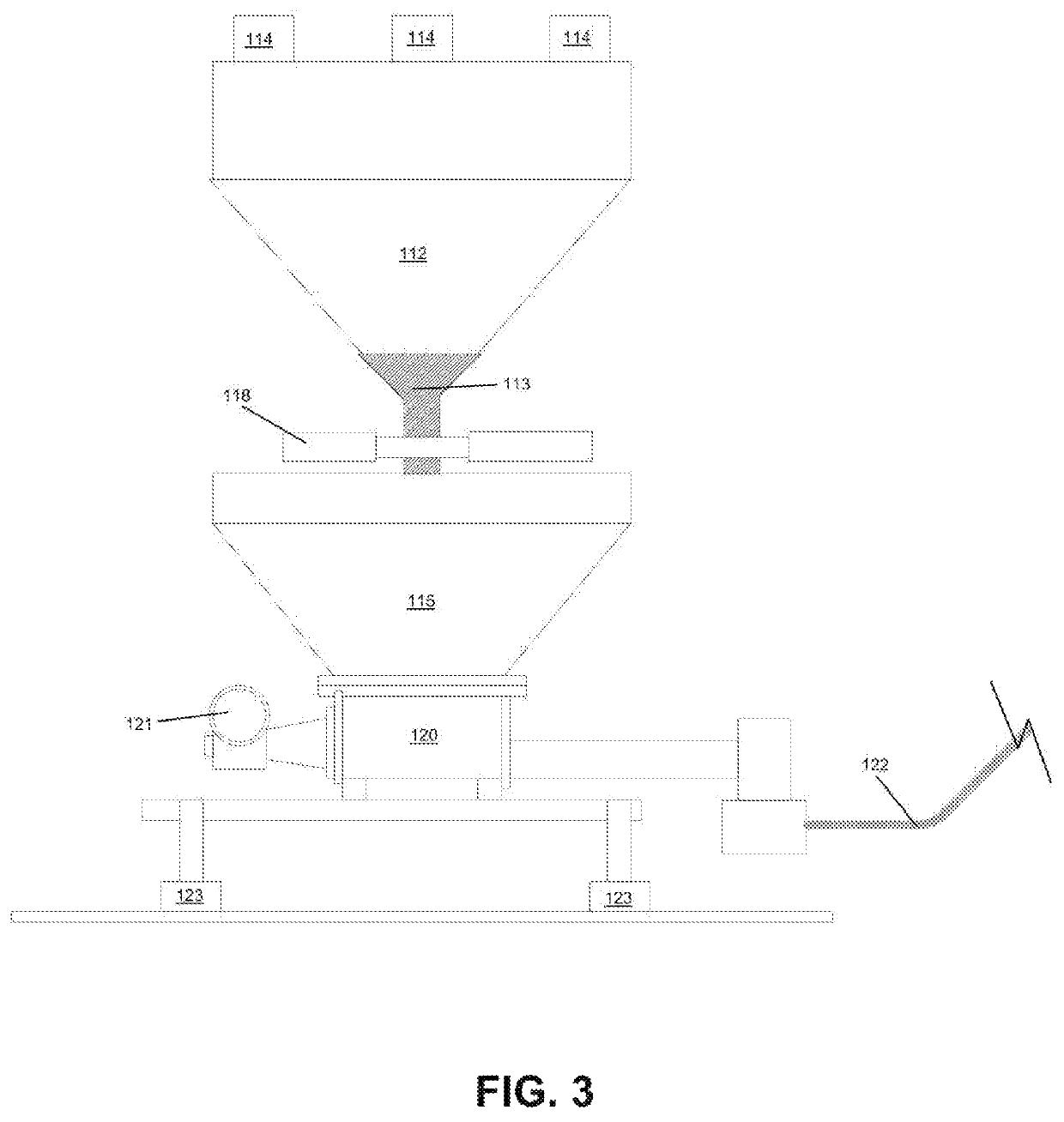High efficiency powder dispersion and blend system and method for use in well completion operations
a powder dispersion and blend system technology, applied in the direction of mixing, transportation and packaging, well accessories, etc., can solve the problems of affecting the hydrating effect of water sensitive powders, the exposure of workers and environmental cleanup hazards, and the inability to meet the requirements of a high-efficiency powder dispersion system, so as to avoid the inability to hydrate water-sensitive powders. , the effect of avoiding the inability to meet the requirements of a high-efficiency powder disper
- Summary
- Abstract
- Description
- Claims
- Application Information
AI Technical Summary
Benefits of technology
Problems solved by technology
Method used
Image
Examples
Embodiment Construction
[0025]Before describing selected embodiments of the present disclosure in detail, it is to be understood that the present invention is not limited to the embodiments described herein. The disclosure and description herein is illustrative and explanatory of one or more presently preferred embodiments and variations thereof, and it will be appreciated by those skilled in the art that various changes in the design, organization, order of operation, means of operation, equipment structures and location, methodology, and use of mechanical equivalents may be made without departing from the spirit of the invention.
[0026]As well, it should be understood the drawings are intended to illustrate and plainly disclose presently preferred embodiments to one of skill in the art, but are not intended to be manufacturing level drawings or renditions of final products and may include simplified conceptual views as desired for easier and quicker understanding or explanation. As well, the relative size...
PUM
| Property | Measurement | Unit |
|---|---|---|
| dew point | aaaaa | aaaaa |
| particle size | aaaaa | aaaaa |
| angle | aaaaa | aaaaa |
Abstract
Description
Claims
Application Information
 Login to View More
Login to View More - R&D
- Intellectual Property
- Life Sciences
- Materials
- Tech Scout
- Unparalleled Data Quality
- Higher Quality Content
- 60% Fewer Hallucinations
Browse by: Latest US Patents, China's latest patents, Technical Efficacy Thesaurus, Application Domain, Technology Topic, Popular Technical Reports.
© 2025 PatSnap. All rights reserved.Legal|Privacy policy|Modern Slavery Act Transparency Statement|Sitemap|About US| Contact US: help@patsnap.com



